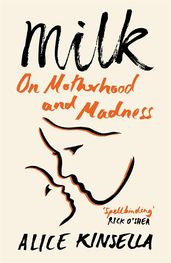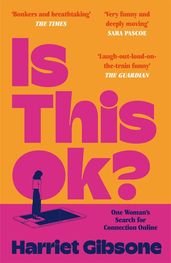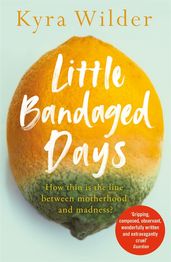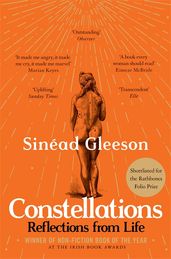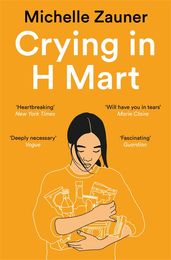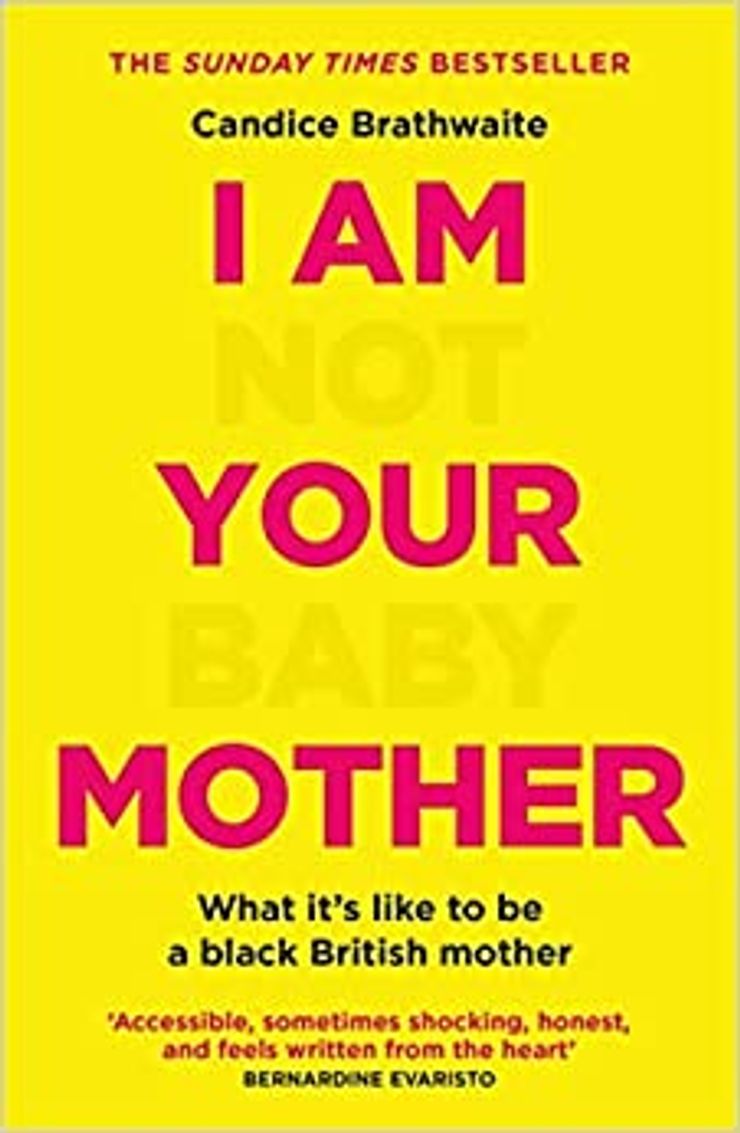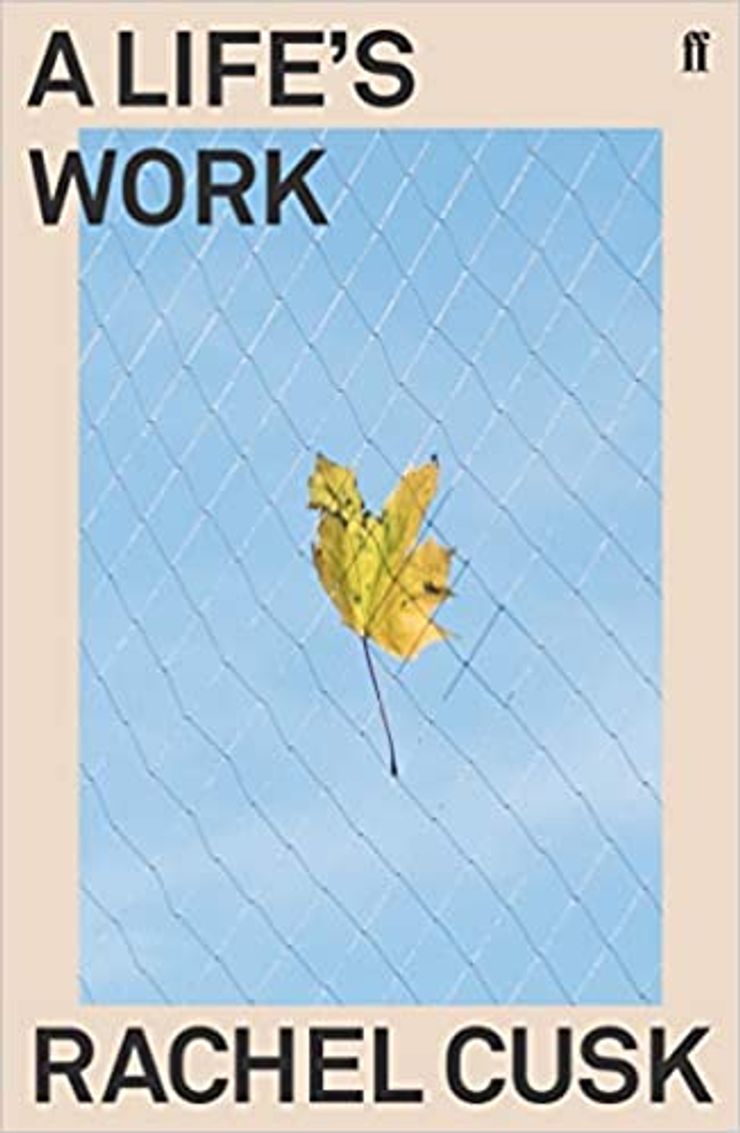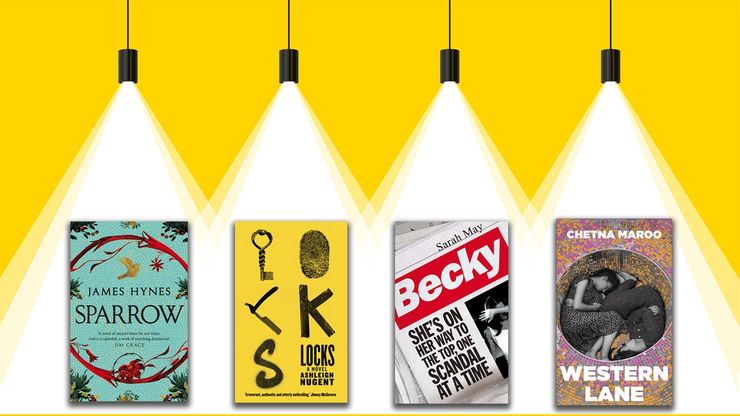'It is solidarity. It is action. It is care': why we need more honest portrayals of motherhood
Alice Kinsella, author of new memoir Milk, on why she believes honest depictions of motherhood are essential, plus our reading list of books that make the cut.
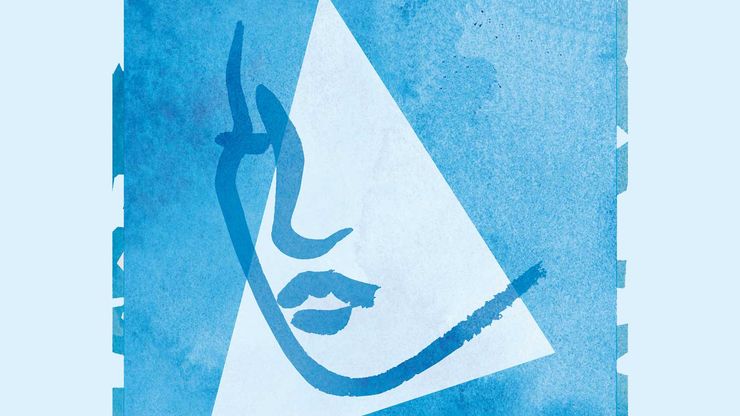
Poet Alice Kinsella's prose debut, Milk, is a powerful yet delicate mix of the personal and political, an exploration of her experience of early motherhood alongside a lyrical history of Ireland's relationship with its women. Here, she explains the need for more honest portrayals of motherhood, followed by our recommendations of books that offer just that.
Motherhood shocked me.
I was prepared. I knew what being a mother would be like. I would be overcome with love and superhuman strength, I would transcend to selfless angel, and I would smell like vomit.
This was an incomplete and not entirely accurate picture. I couldn’t believe I’d been lied to.
The representations of motherhood in popular media create a toxic and dangerous environment for new mothers. To complain about motherhood is to fear our children thinking they are unwanted. It is to seem ungrateful for the best job in the world.
Yet in our silence we become complicit in the shock and suffering of another generation of mothers.
When I became a mother, as with every other significant milestone in my life, I turned to books. I read books on motherhood, not the ‘how to’ parenting books, or medical books, but the other writers who were both struggling and in awe of the experience. In these I found glimpses of recognition, and yet the feeling that I couldn't quite see my own experience reflected. The feeling that I may have something small to contribute to this massive, endless conversation.
In some ways, it’s not possible to prepare. The changes in the body, the sleep deprivation, those unavoidable aspects – they must be rolled with, coped with the best you can.
But there are other aspects of new motherhood, the social and political playing across your new life, that are difficult only because we live in a society that does not value care.
Sharing our experiences and writing critically of the motherhood experience helps other mothers feel less alone, and more than that, helps to push forward to a society where mothers are properly supported. It is solidarity. It is action. It is care.
Our suggested reads. . .
Milk
by Alice Kinsella
'I am not the first woman to have a baby. But I feel like it. No one told me. No one tells us it will be like this.'
Alice Kinsella's Milk is an astonishingly evocative, intimate and moving memoir charting one woman’s first year of motherhood, and a confronting and often painful examination of the experience of having children in contemporary Ireland, and of the country's historical relationship with its women.
Is This OK?
by Harriet Gibsone
Harriet Gibsone's hilarious memoir of a life lived online is also a memoir of motherhood, as her digital existence is thrown into sharp relief by the physical realities of early menopause, fertility treatment and birth. The ostensibly entertainingly-structured description of the latter, which contrasts the experience of a well-known wellbeing influencer with Gibsone's own, trips the reader into one of the most matter-of-fact, brutally effective descriptions of a modern traumatic birth you can find in print. It's an important read, both for its portrayal of a difficult birth and as an examination of how our digital lives can drip unhelpfully into our real ones even when we're engaged in the most bodily, IRL of human activities.
Little Bandaged Days
by Kyra Wilder
Caring for three small children and unable to find time to sit down to eat properly, Kyra Wilder descended into an accidental walnut-based diet. Generally eating straight from the bag, or a pocket, at the time this seemed to her totally fine. "Most mothers of young children have some very similar story," she says, "There is almost always some sort of insanity simmering in the background." Her novel, Little Bandaged Days, came out of her desire to address this bubbling underlying madness. It's a gripping, compelling story, that takes this truth of many experiences of motherhood to a frightening, hallucinatory extreme.
Read more from Kyra Wilder on the inspiration behind Little Bandaged Days.
Constellations
by Sinéad Gleeson
"The assumptions about what female bodies are, should be, or can do have progressed, but the expectation of eventually choosing motherhood has persisted." Increased candor around motherhood must surely also involve more honest conversations about not having children. This collection of essays offers a raw and intimate story of one body through sickness, health and, yes, motherhood, but it also discusses the still taboo-feeling subject of women not becoming mothers. This is sadly often not by choice ("Every woman assumes that they will be able to get pregnant – until they can’t") but often it is. "The entire concept is predicated on biology-as-destiny, as though the acme of being female is to be a mother," Gleeson writes, "but not everyone wants to be."
Crying in H Mart
by Michelle Zauner
You don't have to be a mother, or parent, to write honestly about motherhood. Michelle Zauner's Crying in H Mart is a memoir of grief, food and family and offers a frank and nuanced portrayal of a daughter's relationship with her mother. The particular, high expectations; their late-night bonding over food; and the mother's terminal cancer diagnosis, which forces Zauner to fully engage with her Korean identity and reclaim the gifts of taste, language, and history her mother had given her.
I Am Not Your Baby Mother
by Candice Braithwaite
Looking through the piles of prenatal paraphernalia she received when pregnant, Candice Braithwaite found herself asking, "Where are all the black mothers?" She started blogging, chipping away at the lack of diversity on display in British portrayals of motherhood, and discovering that the problem goes much deeper than media representation, with black British mothers, according to 2018 research, at significantly greater risk of death as a result of complications in pregnancy than white women. This book is part memoir, part manifesto: an honest look at black British motherhood and a rallying cry for change.
A Life’s Work: On Becoming A Mother
by Rachel Cusk
Novelist Rachel Cusk's account of her early experiences of motherhood provoked both acclaim and outrage when it was first published in 2001. An education in babies, books, breast-feeding, toddler groups, broken nights, bad advice and never being alone, it is a landmark work.
